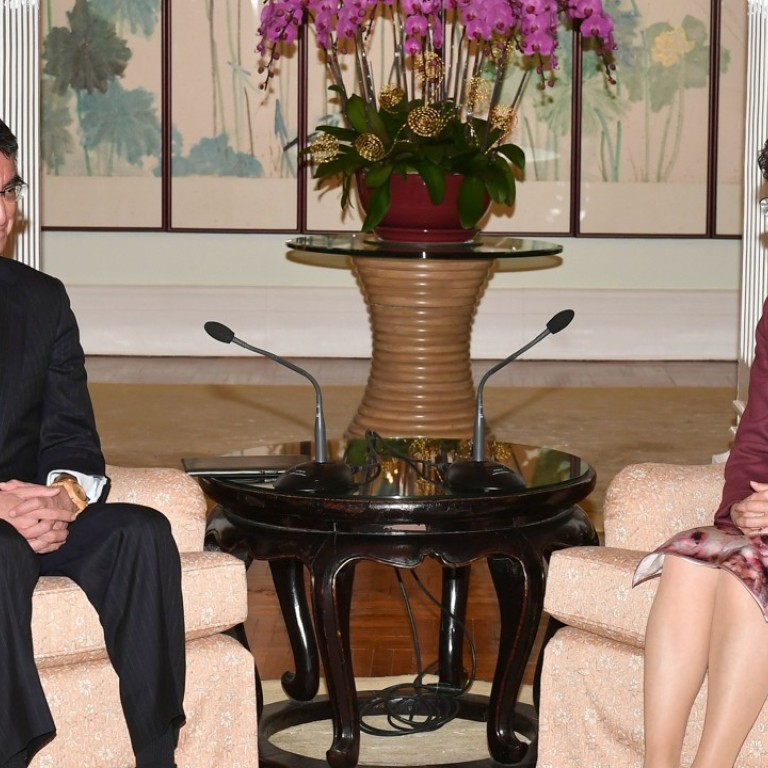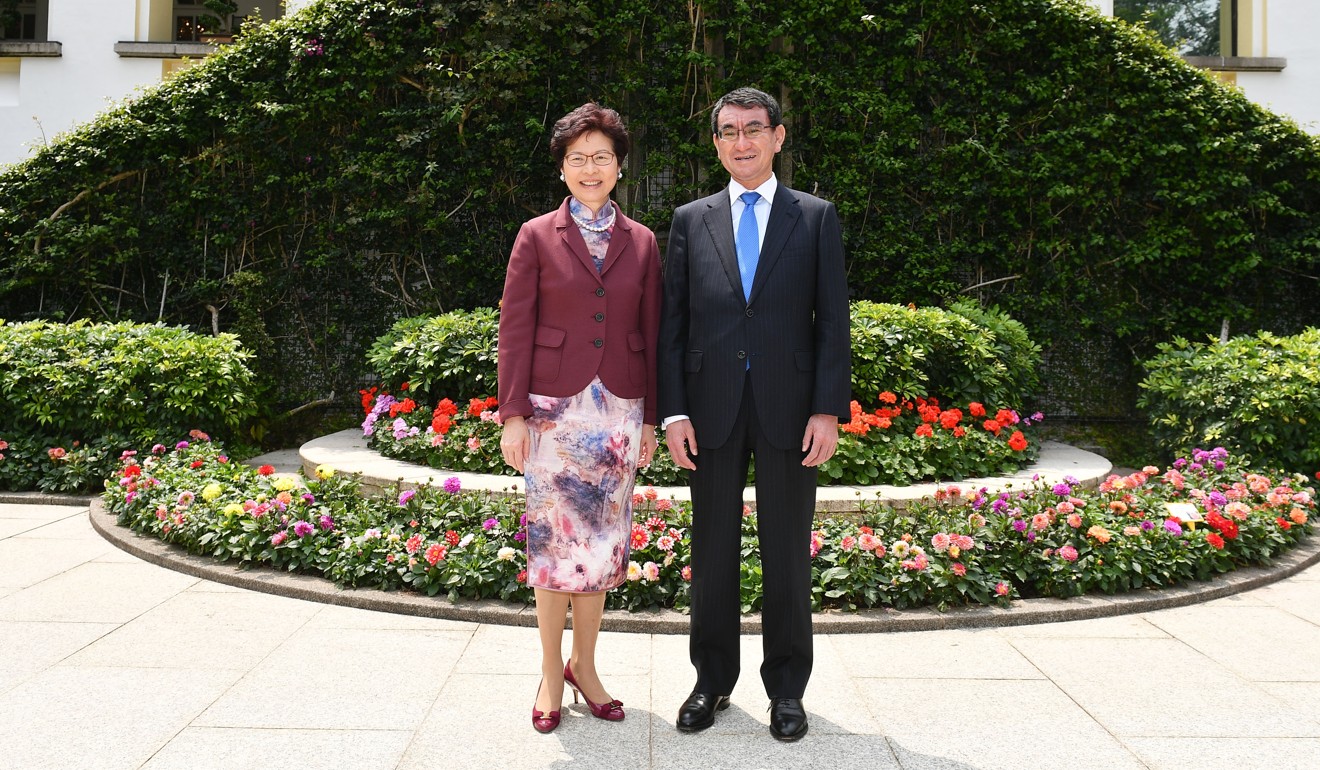
Hong Kong will not lift post-Fukushima ban on some Japanese food
In meeting with Tokyo’s foreign minister, Chief Executive Carrie Lam says restrictions will stay in place for now, while government reaffirms commitment to enforcing sanctions against North Korea
The chief executive also reaffirmed that the city had been strictly enforcing sanctions against North Korea, during her meeting at Government House with Japanese foreign minister Taro Kono, as he wrapped up his two-day visit to Hong Kong on Sunday.
Lam expressed her reluctance to lift the food ban, after Kono raised the possibility during the meeting.
In the wake of the 2011 earthquake and nuclear disaster in Fukushima, Hong Kong banned the import of fresh produce and milk from the prefecture and the four neighbouring prefectures, while conducting targeted radiation testing on fresh produce from the rest of Japan.
“She emphasised that it is incumbent upon the [government] to safeguard public health and hence effective measures must be in place to ensure food safety and to maintain public confidence,” a statement issued by Lam’s office read.
“Under this premise, the Food and Health Bureau will maintain communication with the Japanese authorities to review the latest situation and adopt appropriate measures in relation to the import ban.”
Secretary for Food and Health Professor Sophia Chan Siu-chee said her department had been in touch with Japan’s agriculture ministry over the ban and that “food safety is the primary concern”.
Kono was the first Japanese foreign minister to visit Hong Kong for bilateral matters since the former British colony returned to Chinese rule in 1997, according to the Japanese foreign ministry. Earlier on Sunday, he visited the Aeon department store in Tai Koo, where he tasted food from Aizu in Fukushima, including rice, sake and ramen – exempted from the ban because they are not fresh produce.

“It is scientifically proven it is very safe and those people from Hong Kong who come to Japan [are] already eating spinach and cucumbers from Fukushima. And I think Hong Kong people who have been to Japanese restaurants have eaten Fukushima vegetables and fruit,” Kono told NowTV.
“I would like to tell the Hong Kong people to come to Japan and enjoy the food in Japan.”
The city’s importers and legislators earlier urged Lam to be cautious about Tokyo’s request to lift restrictions on Japanese food imports, saying the government had to make sure all imports would not be contaminated with radiation.
Hong Kong is the largest export destination of Japanese agricultural, forestry and fishery products.
The two officials’ exchange came ahead of a North-South summit on the Korean peninsula next month, and US President Donald Trump’s possible meeting with the North’s leader Kim Jong-un before the end of May.
UN reports in recent weeks said Hong Kong companies were being used as fronts for North Korean businesses, to help it circumvent UN sanctions. Last month the US slapped sanctions on nine companies outside North Korea that were working on Pyongyang’s behalf. Two were based in mainland China and five in Hong Kong.
Lam took the opportunity to say her government was following the sanctions.
“Mrs Lam also reiterated to Mr Kono that Hong Kong has all along been strictly implementing the sanction measures decided by the United Nations Security Council on North Korea, and that Hong Kong will stay highly vigilant about activities and suspected cases that may violate the sanctions,” the statement read.
According to Japanese news agency Kyodo, both sides affirmed their collaboration in preventing North Korea from evading the sanctions. This was in response to incident in which a Hong Kong-registered tanker was found to have secretly transferred oil to a North Korean vessel in international waters last year.

